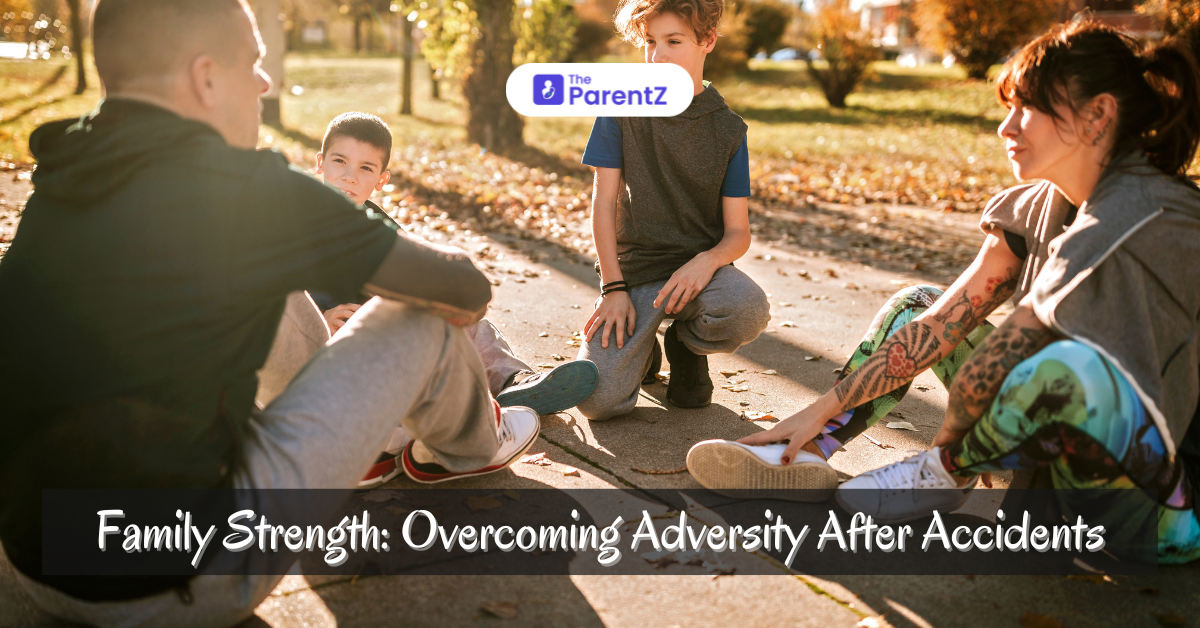Accidents happen—a harsh reality we all grapple with. In the blink of an eye, our lives can take an unexpected turn, leaving us shattered and bewildered. But it's not just the individual who bears the brunt of such trauma; it's the entire family unit that gets shaken to its core. Today, let's talk about the incredible strength that families can find in the face of adversity, especially after accidents.
The Impact of Accidents on Families
Accidents can manifest in countless forms—a car crash, a slip and fall, a house fire—each incident leaves a unique scar. Witnessing or experiencing such events can be particularly traumatic for children. They might grapple with fear, confusion, and a profound sense of insecurity. The world, once a safe haven, suddenly feels unpredictable and frightening. This is where the role of family becomes paramount.
Family Strength: The Bedrock of Resilience
Family strength is the bedrock upon which resilience is built. It's the unwavering support, the silent understanding, and the shared determination to heal. Families often find themselves navigating a labyrinth of emotions in the aftermath of an accident. There's the initial shock, the overwhelming fear, and the gut-wrenching pain. Amidst this chaos, it's crucial to remember that it's okay to feel vulnerable. It's okay not to have all the answers. Seeking help, whether it's from therapists, support groups, or simply friends and family, is a sign of strength, not weakness.
Identifying When Your Child Needs Help
Identifying when your child is suffering can be challenging. Children often mask their pain with smiles or silence. Some common indicators include:
- Changes in Behavior: A previously outgoing child may become withdrawn, while a quiet child might exhibit increased irritability.
- Sleep Disturbances: Nightmares or difficulty falling asleep can be signs of anxiety.
- Physical Symptoms: Complaints of headaches or stomach aches can sometimes stem from emotional stress rather than physical illness.
- Academic Struggles: A drop in school performance or a lack of interest in schoolwork indicates that your child might struggle emotionally.
Recognizing these signs is the first step in providing support. Parents should approach their children with compassion and understanding, creating a safe space for them to voice their feelings.
Supporting Children Through Adversity
Once parents identify that their child is struggling, the next step is to provide support. Here are some effective strategies:
- Open Communication: Encourage kids to talk about their emotions. Ask open-ended questions and listen actively without judgment.
- Reassurance: Let children know that feeling scared or sad is okay. Reassure them that they are safe and that their feelings are valid.
- Routine: Maintaining a uniform daily routine can provide stability and normalcy, which is crucial for emotional recovery.
- Seek Professional Help: If a child's distress persists, it may be beneficial to seek the help of a mental health professional. Therapy can provide children with tools to handle their feelings.
- Family Activities: Engage in family activities that promote bonding and relaxation. This could be as simple as game nights or outdoor activities that encourage laughter and connection.
Healing is a Journey
Healing is a process filled with ups and downs, setbacks and triumphs. Every family's path is unique. There's no right or wrong way to cope. What matters most is the unwavering belief in the power of family. Families can transform adversity into strength by coming together, sharing burdens, and celebrating small victories.
Building Resilience Takes Time
It's important to understand that building resilience takes time. It's a gradual process that involves self-care, open communication, and seeking professional help when needed. Remember, you're not alone. Countless resources and support groups are available to help you navigate this challenging phase.
Conclusion
The aftermath of an accident can be a scary experience. But it's also an opportunity for growth and transformation. Families can emerge from adversity stronger than ever by fostering family strength, seeking support, and prioritizing emotional well-being. Let's remember that it's okay to not be okay, but it's essential to reach out for help when needed. Together, we can heal, grow, and rebuild.





Be the first one to comment on this story.